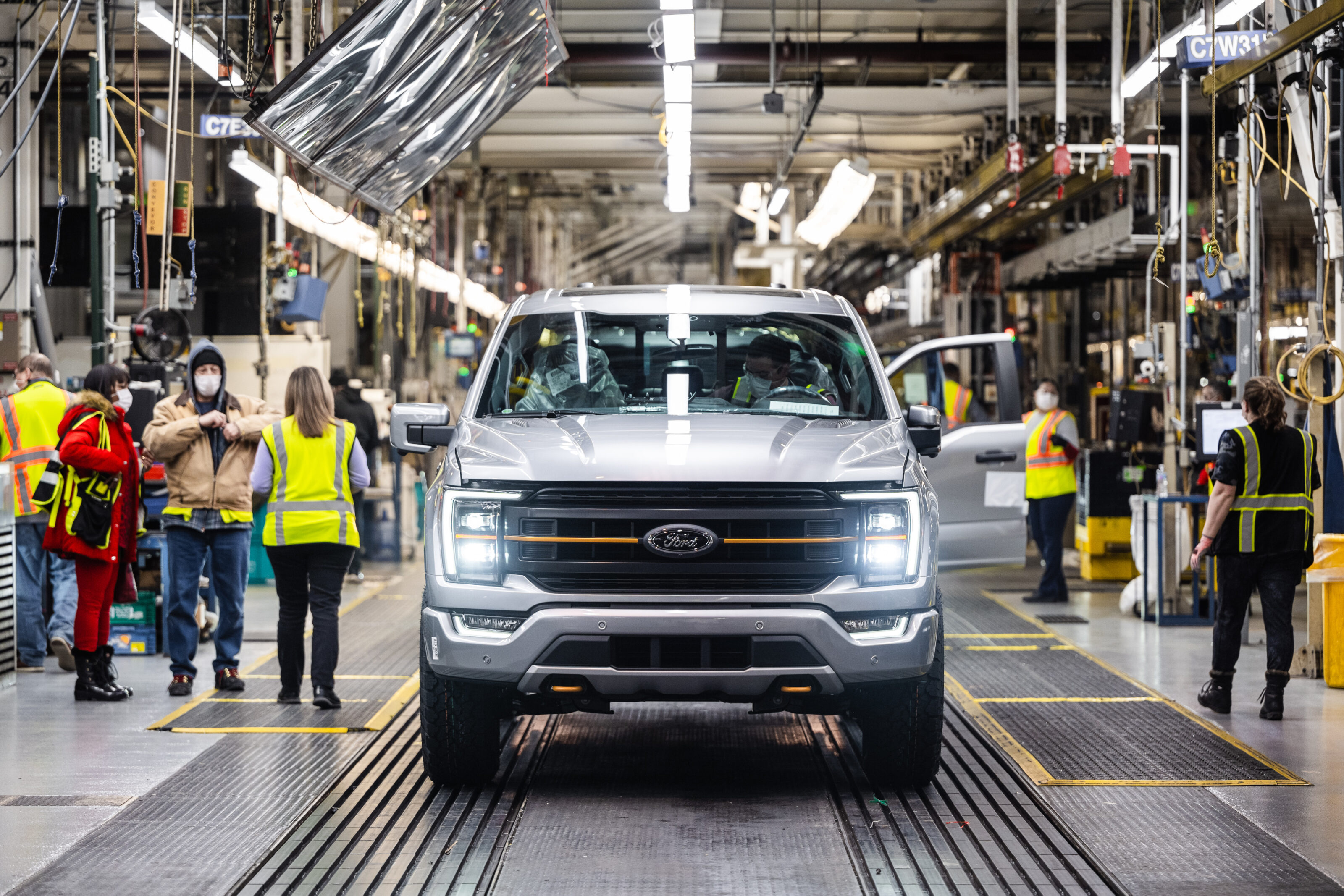UPDATE, February 7, 2022: Ford’s North American operations will be running at reduced capacity in the coming weeks as semiconductor shortages hamper one of the Big Three.
As reported by CNBC, a dwindling supply of chips is most likely to hinder production of the best-selling F-150 pick-up truck, the Mustang Mach-E, the Bronco SUV and Ford Transit van, all of which will only affect buyers in the North American region.
A total of eight plants are expected to be affected, either operating at a reduced capacity or coming to a halt altogether, as will be the case at plants in Michigan, Illinois, Missouri and Mexico.
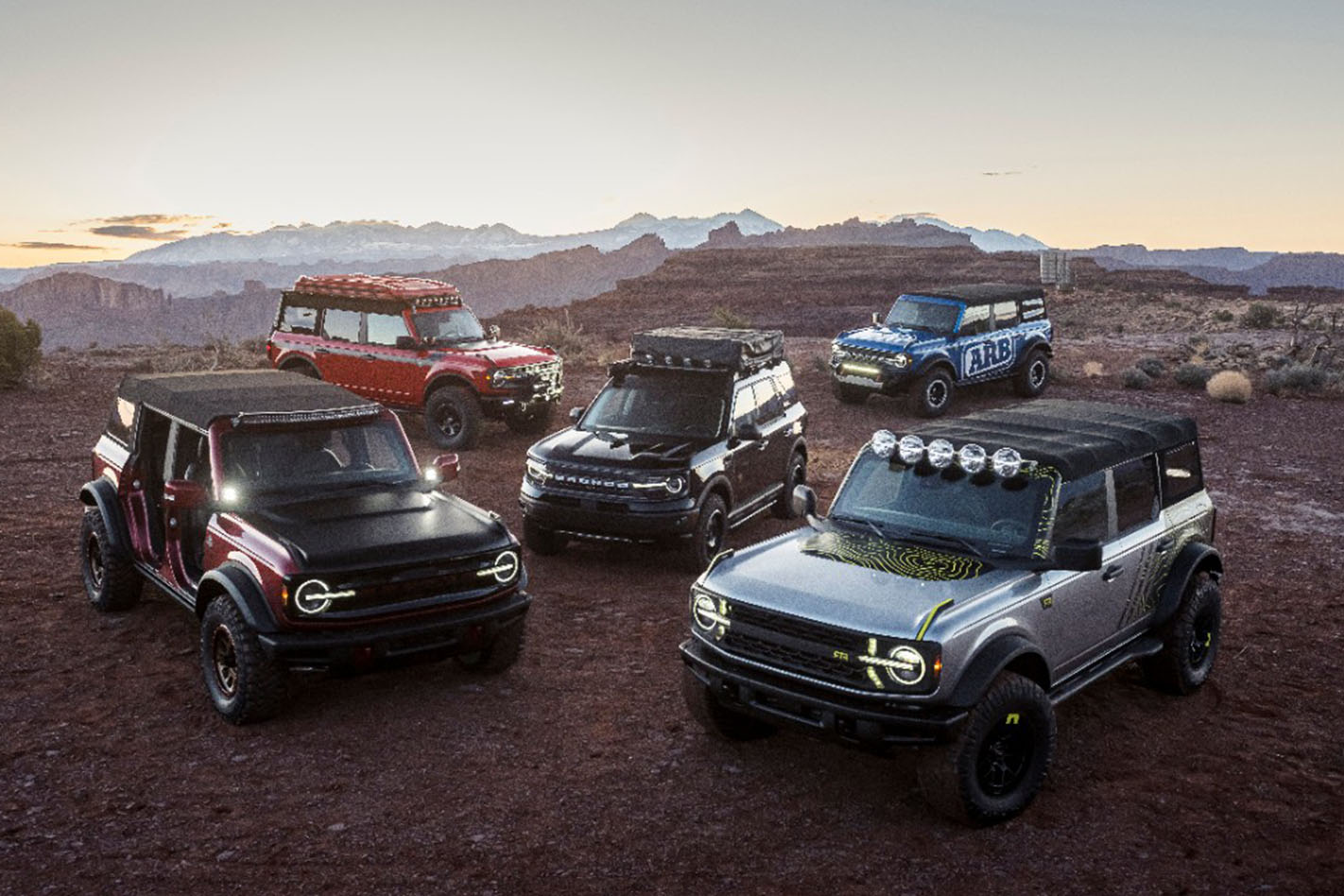
Despite previously prioritising production of the F-150 – the highest-selling vehicle in the United States for decades – the Blue Oval is now forced to ration its part supply to keep cars rolling off the production line.
“The global semiconductor shortage continues to affect Ford’s North American plants – along with automakers and other industries around the world,” Ford said in a statement to CNBC.
“Behind the scenes, we have teams working on how to maximize production, with a continued commitment to building every high-demand vehicle for our customers with the quality they expect.”
It’s the second time in as many months where Ford has hit pause on production thanks to the chip shortage, as the Flat Rock plant which assembles the Mustang underwent a week of downtime last month (more below).
The story to here
January 20, 2022: Production of Ford’s Mustang has been paused for a week, owing to the ongoing semiconductor shortage.
According to The Detroit News, the pony car’s production facility in Flat Rock, Michigan, will be idled for the next week as Ford starts to hit semiconductor supply issues.
It’s the first time the Mustang has been directly impacted by the shortage, despite Ford’s priorities remaining with production of the F-150 – which remains the best-selling vehicle in America.
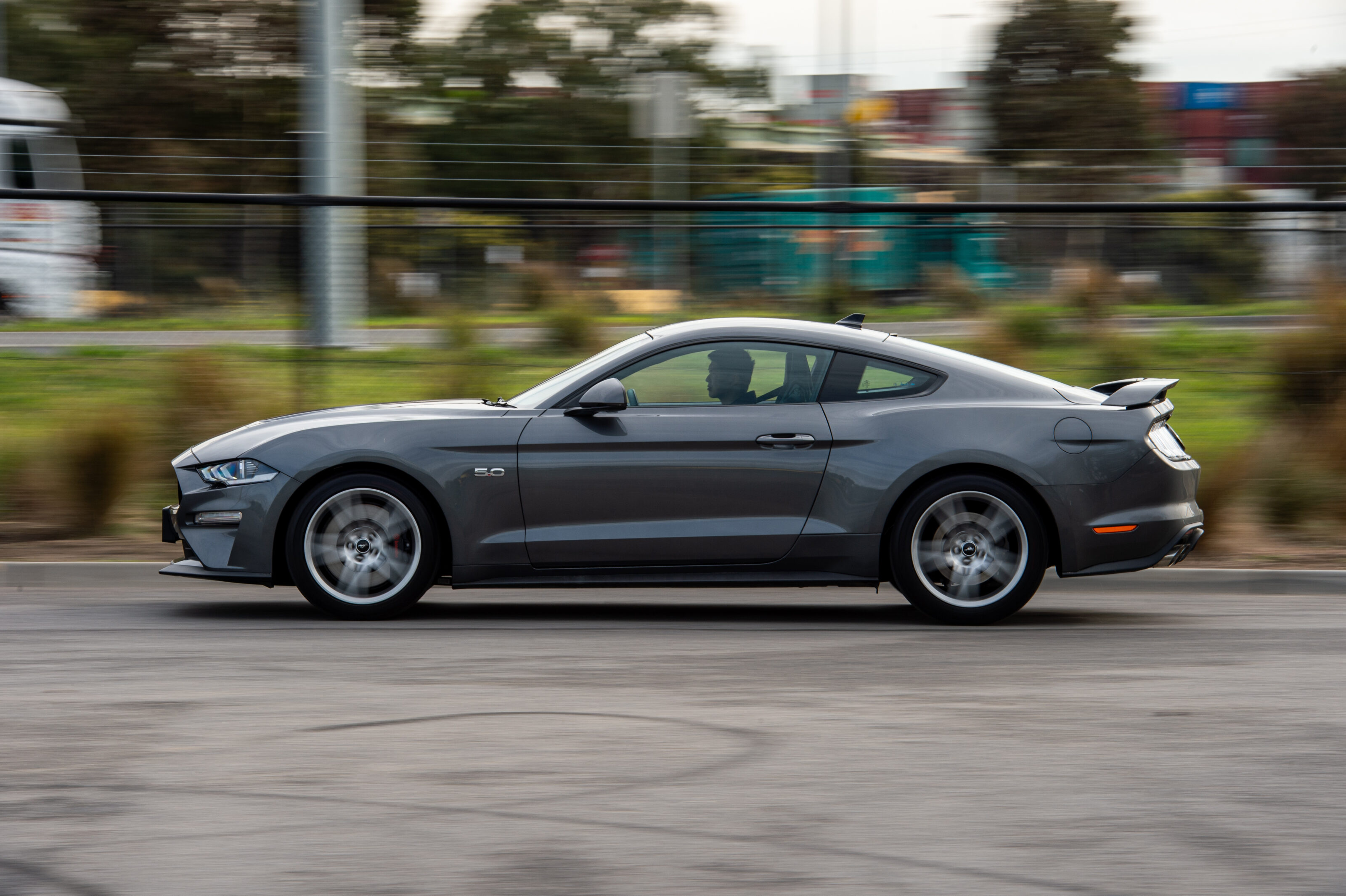
Last year saw Ford Australia sell fewer Mustangs than any other year since official local arrivals began in 2015, shifting just 2827 units throughout the year compared to its peak of 9165 vehicles sold in 2017.
Despite this, a Ford spokesperson told Wheels the production pause wouldn’t affect Australian buyers, with current waiting lists stretched out until beyond March.
“The reported pause to production will not affect Australia, however demand for Mustang continues to be strong, and with limited stock of Mustang, there are waiting periods on most variants into Q2 2022.”
Having started in 2020, the semiconductor shortage impacted Ford’s third-quarter profits last year, as the Blue Oval’s net income fell by just 23 per cent from the same point in 2020, and overall revenue dropped by five per cent compared to 12 months prior.
We recommend
-
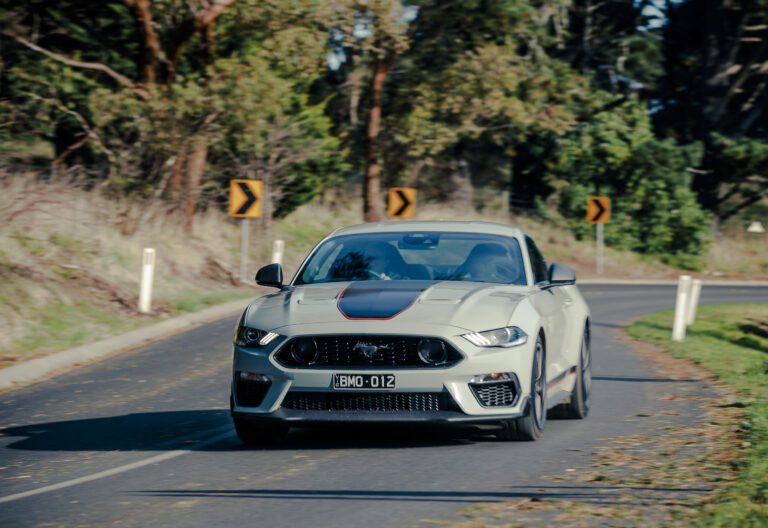 News
NewsMustang Mach 1 missing features costs Ford over $50,000 in penalties
The sum total of the ACCC's penalties work out to just $690 more than the cheapest new Mustang
-
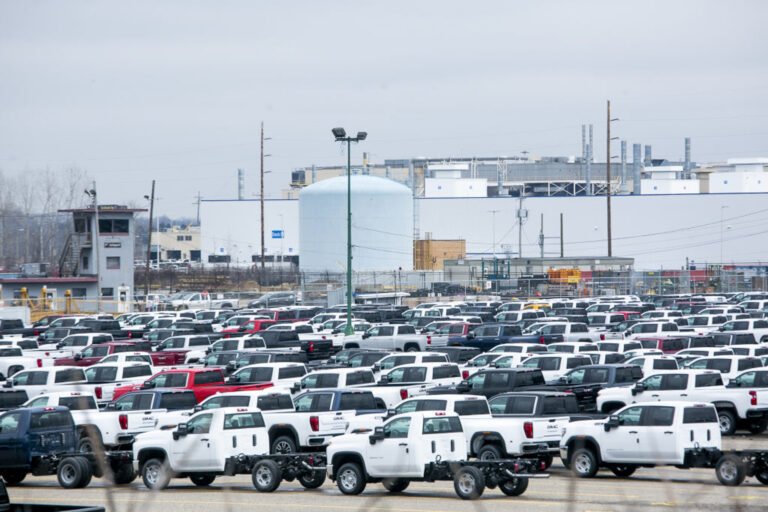 News
NewsFord and GM report third-quarter profit dips due to chip shortage
Semiconductor supply affects the margins of America's biggest manufacturers
-
 News
NewsNew Ford Mustang said to be coming in 2023, hybrid to follow
Evidence is mounting of a new-gen pony car on the horizon, with an all-wheel-drive hybrid V8


